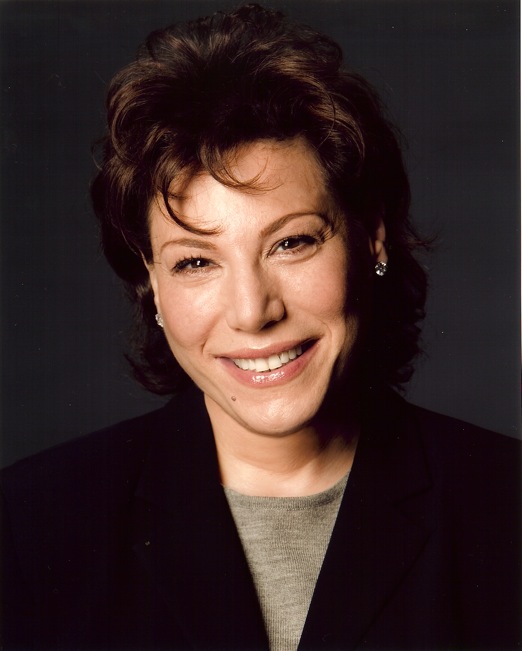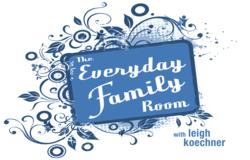Posts Tagged ‘parenting expert’
Dr. Fran Walfish, Psychotherapist to Expert Comment on Governor Jerry Brown Signing Senate Bill 1172
2012


Heidi Smith Luedke reached out to my client, Fran Walfish Psy.D., a Los Angeles-based clinical psychotherapist for her piece in Calgary’s Child about why kids tattle and how to respond.
Here’s the full story:
Nobody likes a tattletale – not even their mother or father. If your child’s playdates and sleepovers are punctuated by whiney reports of misdeeds and injustice, you may be tempted to clear your kid’s social calendar. Not so fast. Interactions with siblings and friends allow kids to practice communication, negotiation and compromise. And dissatisfaction is part of the process.
“In early childhood, it’s normal for kids to share social problems with parents,” says psychologist and school consultant Michael Thompson, Ph.D., author of Best Friends, Worst Enemies: Understanding the Social Lives of Children. At times, they legitimately need our help resolving disputes and soothing hurt feelings. But by second grade, the prohibition against inviting adults into social conflicts is clear. “Kids who tattle get labelled – tattletale, squealer, snitch – and left out,” says Thompson. Bringing infractions to an adult’s attention sets your kid up for friendship failure.
Why kids tattle
Parents might assume kids tattle because they don’t feel empowered to stick up for themselves, says Fran Walfish, Ph.D., a child and adolescent psychotherapist. That’s not true. “Kids tattle because they’ve developed a strong sense of right and wrong and they start policing other people,” says Walfish. Tattletales suffer from an overdose of conscience.
“Tattling at home may also be rooted in sibling rivalry,” says Walfish. An older child might feel they are held to a higher standard than their younger siblings, or that they are disciplined more severely. And they may be right. “Parents need to take an honest look within,” says Walfish. “If you are harsh and judgmental with your children, they’ll act the same way with peers.”
How to respond
It seems obvious: giving attention to a child who tattles will only reward them for tattling. But experts say parents shouldn’t dismiss kids’ reports or tell them to “get over it.” Sometimes kids who tattle just want a safe place to share their concerns.
“Kids won’t say, ‘I need you to listen to this and be outraged on my behalf and then do absolutely nothing,’” says Thompson, “but 90 per cent of the time that is what they want.” When your child comes to you with a story, listen, accept, acknowledge and bear it. Ask questions about how your child plans to handle the situation – that will bring out their inner resilience.
Tattletales who judge and blame are usually more focused on their peers’ behavior than their own. “Position yourself as a mediator,” says Walfish. Kids should present their concerns to each other, not to authority figures. Give each child a chance to speak their piece without interruption or name-calling. You want them to learn how to wrestle with a conflict face-to-face without demeaning the other person.
“This won’t come easy,” Walfish cautions. It is common for parents to get drawn into the dialogue. Step back emotionally so you can coach your child through it without taking sides.
After each child has a chance to talk, ask, “How could you work this out?” Listen to kids’ ideas for addressing the problem. If they don’t have any, offer some suggestions. Let kids choose how to proceed. “The resolution is not nearly as important as the process of working it out,” says Walfish.
Except in extreme circumstances – like when one child is intentionally hurt or belittled – don’t take sides or punish the other child for what a tattletale reported. “Play the role of supportive consultant, not hired gun,” says Thompson. You’ll reinforce the tattler if you act on the information they offered.
Chronic tattling can leave parents feeling frazzled. It may help to arm yourself with kind, matter-of-fact phrases you can use in response, says Walfish. Say, “There are only two grown-ups in this house, and it’s our responsibility to enforce the rules.” Assuring ‘kid cops’ that you are on the job may reduce their need to patrol and shift their attention back to their own activities.
Practice compassion
Not all sharing is tattling, and there will certainly be times when you must intervene to protect your child. Be cautious in your assessment of the situation. “Parents are too quick to define peer behavior as bullying and to accuse other kids, parents or teachers of wrongdoing,” Thompson says. Rushing to judgment reinforces a child’s sense that they are a victim in need of rescue.
It’s usually best to diffuse hurt feelings with empathy instead of going on the offensive. Set the expectation that tomorrow will be a better day. Spend one-on-one time with your child doing something they enjoy. Loving attention can quiet even the noisiest tattletale.
Are gender-neutral toys much ado about nothing? Psychotherapist Dr. Fran Walfish Weighs In
2012

In a recent article by Pamela Stitt in TODAY’S MOMS, my client Fran Walfish, a Los Angeles-based clinical psychotherapist who specializes in children and families shared her views on gender-neutral toys.
Dr. Fran Walfish is the author of The Self-Aware Parent (Palgrave Macmillan).
Here is the full story.

If you missed Betsy Brown Braun’s appearance on MYFOXLA last May, or you don’t live in LA just click here and Betsy will provide you with tips on what do with your back talkin’ child.
Betsy is a child development specialist and the best selling author of award winning Just Tell Me What To Say & You’re Not The Boss Of Me,

A neighbor frequently asks for help with her elementary-age daughter: rides, baby-sitting, meals. But she never reciprocates. Do you say no, knowing the child is the one who will suffer?
My client, Dr. Fran Walfish says, “You should continue to be generous and help this defenseless child. Someone else might say that saying no is creating reasonable boundaries, but it all depends on your point of view.
“I treat many adults who were raised alone,” Walfish says. “They always talk of one special person who saved them psychologically. Perhaps it was a grandmother, uncle, schoolteacher, the parent of a classmate. As a neighbor to this limited mother and her elementary-age daughter, you have the privileged opportunity to be that special person and rescue this child from a world of isolation.”
You can read the full article here.
Dr. Walfish is the author of The Self-Aware Parent: Resolving Conflict and Buiilding a Better Bond with Your Child.

My client Betsy Brown Braun, development specialist and best selling author of award winning Just Tell Me What To Say & You’re Not The Boss Of Me, has just posted this amazing blog on raising kids by example. Check it out below.
YOU ARE WHO YOU ARE WHEN NO ONE IS LOOKING
The mother unwrapped the straw, poked it into the little box, and handed the drink to her toddler as they walked out of the grocery store. The sliver of straw paper slipped from the mother’s hand. I doubt that she even noticed it.
Rolling my grocery cart back to its stable, I looked around to see how many carts were randomly parked, willy-nilly throughout the lot, nowhere near the stable. Who leaves her cart to roll into the next parked car?
Since my greatest interest and life’s work centers on parents and kids, the world is my lab. I notice random acts, relationships, and interactions wherever I go. Observing, noticing, gathering data, storing information, wondering. That’s me. Today at the grocery store I couldn’t help but think about where and how children learn to do the right thing, to make the right choices. Of course, “right” means different things to different people, but I’m thinking of generally accepted right. The answer is kind of complicated, but not really.
To do the right thing, children have to do the wrong thing. Sounds crazy, but it’s true. Much of growing up is trial and error, testing limits and boundaries. Do it wrong, experience the consequence, then do it right the next time. At least you hope it works that way. That’s certainly one of the ways kids figure out what is the right thing to do.
However, even without actively teaching your children, they learn from you because they copy you. Think about the things that you automatically do because that’s the way you’ve always done it. There is the great old tale of the mother who is preparing her Thanksgiving turkey with her adult daughter. The daughter asks, “Mom, why do you always cut off the end of turkey before you put it in the roaster?” The mother who has no answer, knowing only that she cut it because her mother had always done so, calls her own mother. “Mom,” she asks, “Why do we always cut off the end of the turkey before putting it in the roaster?” The grandmother replies, “So it will fit in my roaster.”
Over and over I remind parents that your kids are watching you all the time. It’s about how you live your life every day. If you ALWAYS hang up the clothes you tried on before you leave the store dressing room, the habit will become your child’s too. If you ALWAYS put you trash in the wastebasket, your child will do the same. If grocery shopping ALWAYS ends by returning your cart to the stable, not doing so won’t be a choice. Behaviors, right and wrong, become automatic when they are habitual. And so it will be for your absorbent child. Doing the right thing has a good chance of becoming ingrained in him, whether or not you are there watching.
Next week starts the Jewish High Holidays, the time of reflection: What has been in the year that has passed, and what will be going forward? Whether you observe the Jewish holidays or not, the fall is a good time for everyone to reboot. Are you a person who does the right thing when no one is looking? If your answer is yes, then it’s likely you’re teaching your child to do the same.

This Sunday, The New York Times Magazine will feature a story entitled “Red Crayon, Blue Crayon,” by Austin Considine, which poses questions about publishers who sell political literature to children in the form of coloring books.
My client, Fran Walfish, a Los Angeles-based clinical psychotherapist who specializes in children and families, says that “Political coloring books aren’t new, nor are they limited to one side of the ideological spectrum… In the 1990s,.. there were coloring books about changing families, addressing themes like gay parenting.”
For the full story click here.


The May/June issue of Calgary’s Child features an article by client, Karen L. Schiltz, PhD called “Why Don’t They Like Me: 30 Social Skill Shortcomings.” In this article, Dr. Schiltz discusses the importance of positive peer relations among children and what are the signs that your child may have problems interacting with other children.
Karen L. Schiltz, Ph.D., is the author of Beyond The Label: A Guide to Unlocking a Child’s Educational Potential (Oxford University Press, September 2011).

My client, parenting expert, Betsy Brown Braun, recently appeared on MyFoxLA to talk about the preschool application process.
Here’s some of her tips:
1. Consider the location – Traveling too far, too long in the car, is not good for the child, for the parent, or for the environment.
2. Consider the philosophy of the school – Every school has a different philosophy the educational philosophy and approach to child development. You need to agree with it.
3. Consider the director – Are you comfortable with that person? They hire the teachers who disseminate the educational philosophy – this is the person who will help and support you through all the trials you will experience in raising a young child.
4. Consider the culture of the school – This doesn’t refer to the ethnic culture. It is who the families are and if you feel aligned with them, if you speak the same language (they will be your friends forever.)
You can find Betsy’s books – Just Tell Me What To Say and You’re Not The Boss of Me on Amazon.






